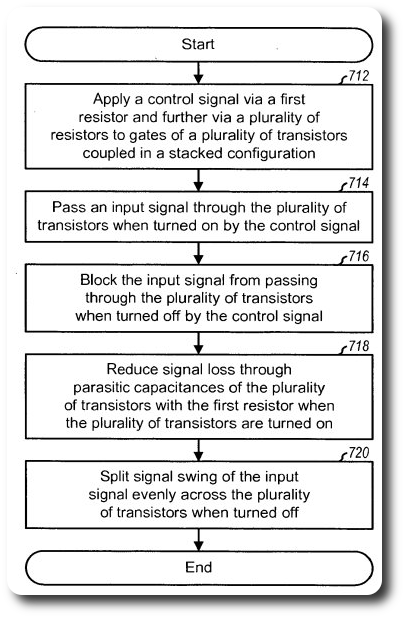

EP2460270 by Marco Cassia (warning: epo.org link)
IN OUR previous post we mentioned how the EPO had begun feeding patent trolls in the same way the USPTO did for a number of decades. Qualcomm is a poorly-managed aging company in a state of decadence, so it nowadays resorts to patents more than anything, even dubious European Patents (EPs), granted by the EPO.
It's a busy September on the FRAND front...
As I reported on the first of the month, the Federal Trade Commission brought a motion for partial summary judgment that may open up the wireless chipset market--by reminding Qualcomm of its self-imposed obligation to license rival chipset makers--even prior to the big antitrust trial in the Northern District of California.
It's odd that a mere reminder would be a potential game-changer, but that's the way it is because of Qualcomm's refusal to live up to the FRAND promise.
Yesterday, CCIA and ACT filed an amicus brief in the FTC’s case against Qualcomm in the Northern District of California. As explained in the brief, the FRAND obligation which patent owners voluntarily agree to when they participate in the development of a standard requires the owners of standard-essential patents to license their patents on “fair, reasonable, and non-discriminatory terms.” And the “non-discriminatory” portion of that obligation means precisely what it states—that the patent owner may not discriminate amongst willing licensees, but has to license anyone who wants a license.
Yesterday's Qualcomm v. Apple trial took twice as long as the average Mannheim patent trial. In fact, the ventilation system was switched off in the late afternoon, so for the last hour, two doors had to be kept open. The courtrooms at the Mannheim Regional Court, Europe's leading venue for wireless patents, are famously windowless.
Presiding Judge Dr. Holger Kircher forthcomingly stated at the outset that this case was, in my words, too close to call (unlike the one that Qualcomm agreed to stay in June), thus the court had to elaborate on all our of Apple's defenses: non-infringement, invalidity (which German district courts don't determine, but they can and often do stay cases pending a parallel nullity or revocation proceeding in another forum), abusive conduct (antitrust), and licensing (through one or more contract manufacturers). I'll address the first two--the traditional defenses to patent infringement--in this post, and the affirmative defenses (the remaining two) in a subsequent post since there's an abundance of interesting things to report and comment on.
The patent-in-suit, EP2460270 on a "switch with improved biasing" ("biasing" in this context basically meaning that one voltage gets to control another), is not standard-essential. Essentiality hasn't been alleged by any party to the German Qualcomm v. Apple cases that have been heard so far. Nor is it related to wireless baseband processors: it's a general circuity patent covering a type of switch. It was mentioned during yesterday's trial that the chip allegedly infringing on the patent is supplied to Apple by Avago/Broadcom. But all of the accused devices come with an Intel baseband chip, a fact that will be relevant to the antitrust part of the next post.
This is my second post on the Qualcomm v. Apple patent infringement trial held by the Mannheim Regional Court yesterday. In the previous post I reported on the alleged (non-)infringement and (in)validity of the patent-in-suit, EP2460270 on a "switch with improved biasing". While the case is too close to call, this patent assertion may fail on the merits just like the first one that went to trial in Mannheim. But the court might also, contrary to what the non-asserted independent claim 16 implies for claim construction purposes and despite a finding by the Swedish patent office that the patent lacks a sufficient inventive step over prior art presented by Apple, hold Apple liable for infringement and decline to stay the case pending a parallel nullity action. In that case, Apple's affirmative defenses--antitrust and licensing--will be outcome-determinative at least with respect to the availability of injunctive relief.
For a long time, it was hard to fend off even standard-essential patent injunctions in Germany on antitrust grounds (with or without a FRAND commitment, which German courts wouldn't deem enforceable by third-party beneficiaries anyway). It was arguably hardest in Presiding Judge Dr. Kircher's court. The situation improved after the Court of Justice of the EU ruling in Huawei v. ZTE; in a way, it already got a little bit better after the European Commission took action against Samsung and Motorola. But very regrettably, the thinking of German patent judges is still, by and large, that antitrust defenses are just part of a throw-in-the-kitchen-sink tactic of infringers.
The patents Qualcomm is asserting in Germany--at least the ones that have been discussed in hearings or trials--aren't standard-essential, which ups the ante for Apple's antitrust defense. However, the fact that Qualcomm's conduct has been deemed anticompetitive by competition enforcers in multiple jurisdictions ("Antitrust Grand Slam").
Yesterday the Munich I Regional Court held a six-hour (including breaks, though) trial on Qualcomm's eight lawsuits asserting four different search user interface patents against Apple's Spotlight search, with two lawsuits per patents targeting a total of three different Apple entities. A first hearing had been held in early May.
That part of the wide-ranging, earth-spanning, multifaceted Apple-Qualcomm dispute is, however, strategically so unimportant that it's not worth multiple posts or anything. That set of eight cases is a total waste of court and party resources--sort of a tempest in a teacup--as these Munich Spotlight cases have been defanged in three important ways...